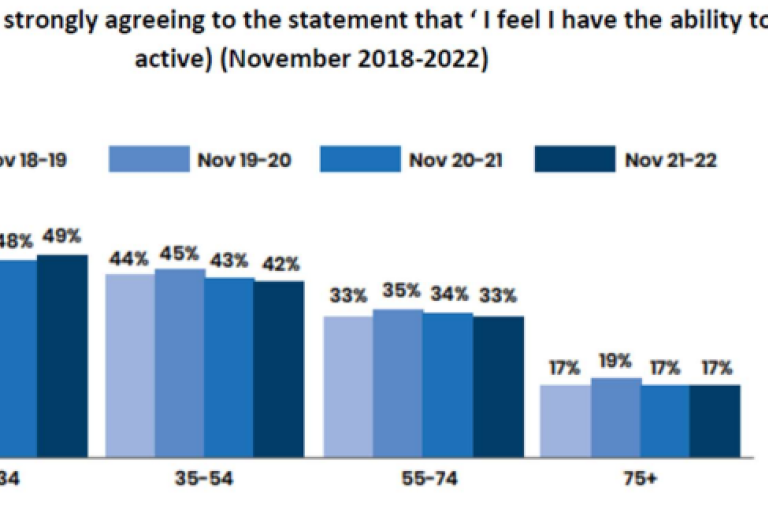Views of population
Falls prevention advice
A survey commissioned by Age UK has found that millions of older people are worried about falling over, with 4.3 million (36%) saying it topped their list of concerns. Older people living on their own were most worried about falling. Fear of falling can lead to general loss of confidence, social isolation and avoidance of activities, and therefore has the potential to result in increasing frailty and risk of further falls.
It is clear there is an unmet need in terms of adequate support and advice if vast numbers of older people fear falling. Focus groups of older people, aged 66-91, have highlighted traditional falls prevention advice is often viewed as common sense, only necessary for more disabled individuals and at times patronising.
Older people reject the designation of “at risk of falling” due to a perceived association with dependency and incompetence. The negative association is a barrier to engaging at-risk populations with falls prevention interventions.
Older people are motivated to participate in strength and balance training by a wide range of perceived benefits including improved mood, independence and not just reduction of falling risk.Promoting a positive attitude towards living well encourages older people to engage in healthy, risk reducing behaviours.Messaging around reducing falls risk should therefore focus on the positive benefits of improving strength and balance if it is to be better received over well meaning, but potentially patronising, traditional falls prevention advice. Such an approach could result in improved outcomes for people at risk of falls.
Individuals perceived ability to exercise
In 2022, less than 50% of adults aged 16 years and over felt they had the ability to exercise. The percentage decreased with age, reducing to less than 20% for the over 75s (Figure 7).

Figure 7- Individuals perceived ability to exercise depending on age category. Data source: Sport England Active Lives Adult Survey 2021-22 report.
